When it comes to rechargeable batteries or power banks, everything appears to be the same from the outside, what makes them different is the technology inside the battery. As a person that uses a flash gun, wireless mouse, wireless keyboards, power pack and more, I need to know which brand gives me the best deal.
Continue ➤ 7 Free Battery Capacity Health Checker For macOS And Windows Laptop
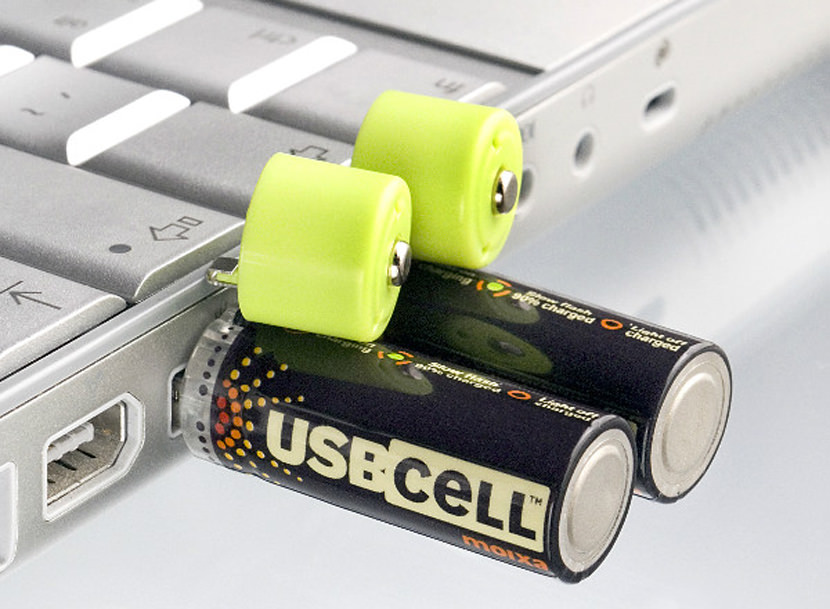
After much trial and error, based on my own experience of owning various brands, I can safely conclude that nothing beats Panasonic Eneloop. The only drawback is the price, on the other hand, Ikea LADDA is value for money. Without further ado, here are the 3 reasons to choose Panasonic Eneloop batteries. After all, you cannot go wrong with the biggest battery maker in the world. Tesla’s battery supplier is none other than Panasonic.
The following brands of NiMH batteries were tested: Panasonic Eneloop (1900 mAh, not 2000), Duracell, Energizer, Harbor Freight Thunderbolt, EBL, Rayovac, AmazonBasics Silver, AmazonBasics Black, and the Ikea LADDA. All batteries tested were new and recently purchased from Amazon. As an addendum to the first AA battery showdown, the following batteries were also tested: Kirkland (Costco), Sunbeam (Dollar Tree), Ikea, and AC Delco.
1. Top Rechargeable Battery Brands / Companies
Do note that Panasonic bought Sanyo and Sanyo’s Eneloop is now known as Panasonic Eneloop. As shown in the table below, Panasonic’s Eneloop has the highest retention rate and cycles. If money is not an issue, go for Panasonic (They make batteries for Tesla). Ikea LADDA on the other hand is affordable, ideal for those looking for disposable rechargeable batteries on the go.
| Batteries | Capacity | Materials | Recharge Times | Features |
|---|---|---|---|---|
Panasonic eneloop | AA [2000 mAh] AAA [800 mAh] | NiMH | 2100 Cycles | Retains 70% capacity after 5 years in storage |
Panasonic eneloop pro | AA [2550 mAh] AAA [950 mAh] | NiMH | 500 Cycles | Retains 85% capacity after 1 year in storage |
Panasonic eneloop lite | AA [1000 mAh] AAA [600 mAh] | NiMH | 3000 Cycles | Retains 70% capacity after 5 years in storage |
Panasonic eneloop tones ocean | AA [2000 mAh] AAA [800 mAh] | NiMH | 2100 Cycles | Retains 70% capacity after 5 years in storage |
Sony CycleEnergy | AAA [840 mAh] AA [2500 mAh] | NiMH | 500 Cycles | Stays 85% charged after 1 year of storage |
Energizer PowerPlus | AAA [850 mAh] AA [2300 mAh] | NiMH | 700 Cycles | Charge lasts up to 12 months in storage. % Unknown |
Energizer Universal | AAA [800 mAh] AA [2000 mAh] | NiMH | 1000 Cycles | Charge lasts up to 12 months in storage % Unknown |
Duracell Rechargeable | AAA [850 mAh] AA [2500 mAh] | NiMH | 1000 Cycles | Charge for up to 1 year in storage. % Unknown |
Ikea LADDA | AAA [900 mAh] AA [2450 mAh] | NiMH | 500 Cycles | Very Affordable |
AmazonBasics Rechargeable | AAA [850 mAh] AA [2450 mAh] | NiMH | 1000 Cycles | 65% of original charge after being stored for 3 years |
2. NiMH vs. NiCd vs. Lithium-ion vs. Lithium Poly
When it comes to choosing rechargeable batteries, Lithium-polymer is the best. This is due to the fact that once it is fully charged, it doesn’t lose its capacity as quickly as others. This makes it ideal for emergencies and long trips. Nickel–metal hydride [ NiMH ] on the other hand is cheaper and it only makes perfect sense for those that will consume the entire charge within a few days. For instance, photographers and their flash guns.
NiMH has a higher discharge rate than poly but advancement in technology has caught up and today’s NiMH has a high retention rate. These newer batteries from Sony, Panasonic and more has the ability to store their charge for longer than a year. The table below shows the industry average for discharge rate. Here are the advantages and disadvantages of both materials:
| Voltage | Charge discharge efficiency in % | Self-discharge rate in %/month | Mainly Used In | Time durability in years | |
|---|---|---|---|---|---|
Nickel–cadmium | 1.2 | 70%-90% | 20% | Rechargeable Batteries | n/a |
Nickel–metal hydride | 1.2 | 66% | 5 - 30% | Rechargeable Batteries | 2 - 5 |
Lithium-ion | 3.6 | 99% | 5%-10% | Smartphone batteries | 2 - 6 |
Lithium-polymer | 3.7 | 99.8% | 5% | Power Bank / Power Pack | 2 - 3 |
Lithium-ion Battery:
- [ Pro ] High energy density – potential for yet higher capacities.
- [ Pro ] Does not need prolonged priming when new. One regular charge is all that’s needed.
- [ Pro ] Relatively low self-discharge – self-discharge is less than half that of nickel-based batteries.
- [ Pro ] Low Maintenance – no periodic discharge is needed; there is no memory.
- [ Con ] Requires protection circuit to maintain voltage and current within safe limits.
- [ Con ] Subject to aging, even if not in use – storage in a cool place at 40% charge reduces the aging effect.
- [ Con ] Expensive to manufacture – about 40 percent higher in cost than nickel-cadmium.
Lithium-polymer Battery:
- [ Pro ] Flexible form factor – manufacturers are not bound by standard cylinder cell shape. With high volume, any reasonable size and shape can be produced economically.
- [ Pro ] Lightweight – gelled electrolytes enable simplified packaging by eliminating the metal shell.
- [ Pro ] Improved safety – more resistant to overcharge; less chance for electrolyte leakage.
- [ Con ] Lower energy density and decreased cycle count compared to lithium-ion.
- [ Con ] Expensive to manufacture.
- [ Con ] No standard sizes. Most cells are produced for high volume consumer markets.
- [ Con ] Higher cost-to-energy ratio than lithium-ion
3. Quality vs Quantity
Panasonic Eneloop vs Ikea LADDA. When it comes to photography, speed is everything and the best AA rechargeable batteries for your Speedlight Flashgun will be none other than Panasonic Eneloop. As shown in the test below, a head to head comparison between Sanyo Eneloop on two Nissin 622 Mark II reveals that the winner is Eneloop. The Eneloops have been used for about 2 years while the Laddas are brand new after their first full charge at home. In short, Eneloop is the best rechargeable battery for your Nikon SB-900, Nikon SB-700, Nikon SB-600, Canon 580EX II, Canon 430 EX II.
Ikea LADDA batteries vs Panasonic Eneloop Pro recycle test on a camera flashgun. Surprisingly, the Ikea newest LADDA batteries performed pretty well. The previous generation LADDA batteries which were green in colour are made in China whereas I noticed these white coloured versions are made in Japan. Perhaps the quality control is better.
4. How Do You Prolong The Lifespan of Your Rechargeable Batteries?
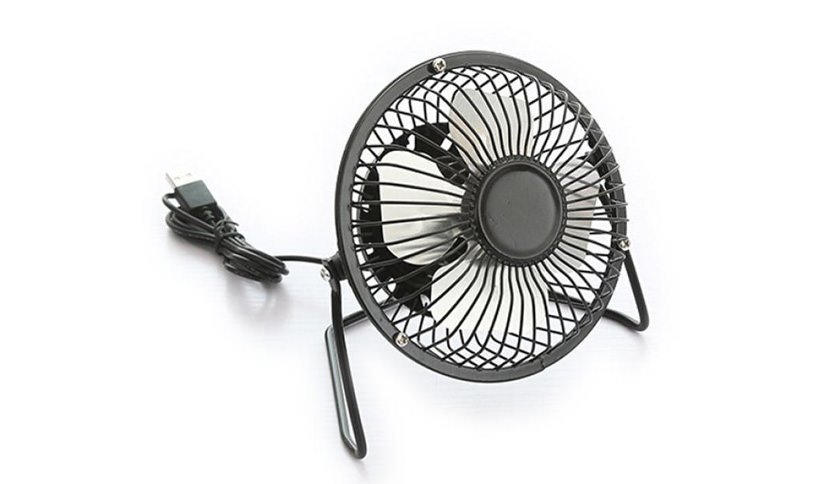
The biggest enemy is heat, when you recharge your AA or AAA batteries, it gets heated up, this will greatly reduce the battery cycle and lifespan. In the end, you can get the best quality rechargeable battery but without proper care, it will degrade faster than the cheaper Ikea LADDA batteries. Buy a portable USB mini fan to cool your AA rechargeable batteries while it is being charged.


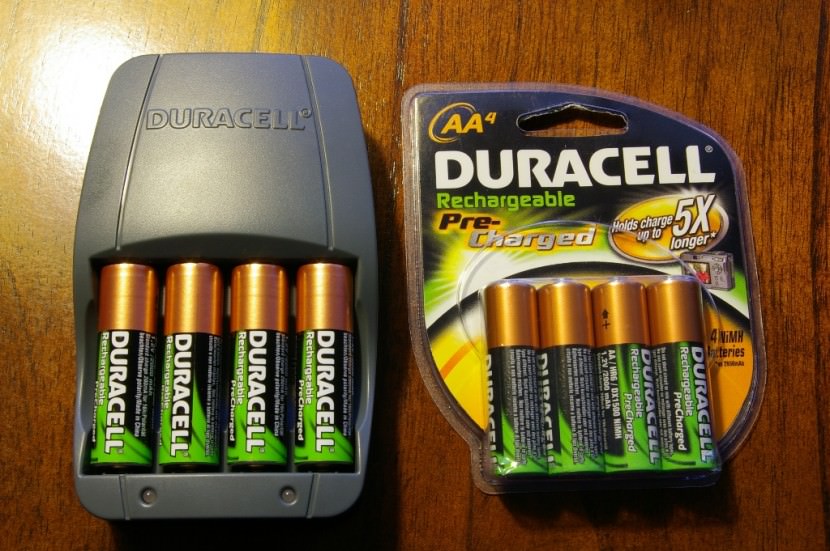


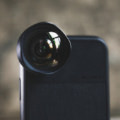
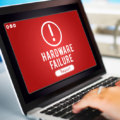
usbcell – revolutionary rechargeable battery that can charge from any USB port.
Cons:
1. not “any” USB port … but one with compatible plug (e.g., USB-C)
2. more expensive.
3. harder to use (charge), having to fiddle with cable and small connector
Pros:
You can usually find/borrow an appropriate USB cable and port easier than you can find/borrow a charger!
Apple batteries share the characteristics common to lithium-based technology in other devices.
Past a few dozen charge cycles, I’ve found Duracell rechargeable batteries do NOT hold a full charge. Energizers have been far superior. Guess I’ll try Eneloops.
If I use an item once per week(like a beard trimmer) for 10 minutes, should I use rechargeable AA Nimh LSD batteries(like Eneloop, Eneloop Pro or Energizers)?
It depends, if you’re at home most of the time, why pay for more expensive batteries, you can just recharge them over and over again even if they are not depleted, no need to wait till they are fully empty.
On the other hand, if you travel often, a battery with better lifespan makes more sense – eneloop.
Evolta is not even mentioned. So you do not recommend them?
Panasonic bought Sanyo, they merge eneloop with their battery division. They are the same now.
The new white IKEA Laddas have the same performance as the black eneloops and they actually could be same batteries as black Fujitsu bateries. No reason in 2017 to buy anything else than Laddas.
http://lygte-info.dk/review/batteries2012/CommonAAcomparator.php
performance as in output? yes, they should be the same, however, the ability to retain the power is what differentiate them, based on my experience, once fully charged LADDA batteries doesn’t last as long as my Sony’s rechargeable batteries. Panasonic/Sanyo Eneelop has the longest shelf life. In term of output, they are all the same as advertised.
When does the ability of the batteries to retain their capacity matters? During a camping trip, possible during a sudden emergency, or devices that you do not use often but dislike recharging the batteries whenever you need to use it.
There are still multiple reasons for using std eneloops in stead of PRO. But with camera strobes the more mAh of the PRO has an advantage. PRO has less cycle life and sooner build up internal resistance. Plus they are more prone to damage by overcharge, reverse charge and heat.
Appreciate the effort and the postings. One should note, though, that NiMH develop their maximum capacity over the first 2-4 charge cycles. Anyone with an intelligent conditioning charger has observed this.
Thus, it may be unfair to say, “The Eneloops have been used for about 2 years while the Laddas are brand new after their first full charge at home.”
I use the LADDAS with great success. Each LADDA goes through the “BREAK IN” treatment of my MAHA ENERGY (MH-C9000) charger. On a 2450 rates battery, the break in takes about 3.5 days. They puff up to a real capacity of 2700-2850 mAH and stay fresh in everything from high-output LED flashlights to a wireless bluetooth computer mouse.
Cheers,
When it comes to choosing rechargeable batteries, Lithium-polymer is the best. This is due to the fact that once it is fully charged , it doesn’t lose its capacity as quickly as others. This makes it ideal for emergency and long trips. On the other hand is cheaper and it only makes perfect sense for those that will consume the entire charge within a few days. For instant, photographer and their flash gun.
WHAT YOU MEAN BY IKEA LADDA AS A ‘DISPOSABLE’ RECHARGEABLE BATTERIES ON THE GO? YOU TESTED THE 2000 MAH ‘AA’ BATTERIES WHEN THERE IS 2450 MAH. WHY?
Panasonic is not the producent of eneloops, FDK Fujitsu is, both for Ikea and Panasonic.
Panasonic bought up eneloop around 2014.
https://www.panasonic.com/global/energy/products/eneloop/en.html
Panasonic bought about 50% of Sanyo in 2009, and then divested most of their small NiMH battery division to Fujitsu FDK in order to satisfy antitrust concerns in the United States and I believe China. They completely bought out Sanyo in 2011.
https://www.ftc.gov/news-events/news/press-releases/2010/01/ftc-approves-final-consent-order-matter-panasonic-corporationsanyo-electric-co-ltd-ftc-approves
https://www.ftc.gov/sites/default/files/documents/cases/2010/01/100108panasantodo.pdf
Panasonic still owns the Eneloop trademark, but they no longer develop the technology for the batteries. They just buy the batteries from Fujitsu with their label and market them as their own. There are probably many different companies that use the same battery with a different label from the Fujitsu factory.
Panasonic chargers are fine, but I disassembled a case and found that it really uses a (Taiwanese) Elan Microelectronics battery charging IC. Not sure about the latest ones that include a USB power port.
Thanks for correcting me.
What a shame GP Recyko is not in this list.
Anyway thanks for sharing!
Thanks for the article!!
Looks like AmazonBasics Rechargeable is the best deal–better than the Ikea LADDAs which might be Eneloop Pros. Seems AmazonBasics is the SAME EXACT THING as regular Eneloop, judging from the capacities of the 16 pack for AA and 12pack for AAA: 2000/800 (Same as Eneloop!) Ikeas AAs are 1.75 USD per, Amazon = 1.5
There are also the Turnigy LDS nimh rechargeables from Hobbyking…but at $1.63/AA Amazon is the better deal. All the Sony, Duracell etc seem ridiculously overpriced.
FDK is the only factory currently in Japan that can make Low Self-Discharge nickel-metal hydride batteries. Fujitsu FDK makes batteries that are branded Panasonic Eneloop, Amazon, Fujitsu, Energizer, Duracell, IKEA Ladda and others. That is why all top brand rechargeable batteries “Made in Japan” have similar specs… they come from the same factory.
Great information shared about AA and AAA batteries.
All info about rechargeable batteries are truly great
Can’t believe you didnt include EBL. The article was fine, but the exclusion of a brand which might very well be better than all of those you tested makes the results suspect.
Eneloops are great batteries (and I use a lot of them and the Amazon Basic) but like all NiMH (and alkaline) batteries, they don’t handle the extremes of heat and cold very well. When your discharge rate is relatively low and you want really long life – like for that emergency flashlight you threw in the trunk of your car – the Energizer Ultimate Lithium primary (non-rechargeable) still comes out on top with excellent capacity at -30C and +60C. It also has EXTREMELY low self-discharge resulting in a 20 year shelf life. and it’s 100% leak proof.
Have a lantern with a 600 mi battery. I have 1000 mi batteries. Will this work in the lantern and is there any safety issues using them.
Why did you not test Bonai 2800 brand?
I use Energizer head lamps that take 3 AAA batteries. I have been buying the cheapest Alkaline AAA batteries I can find. But I was thinking of getting rechargeable, but heard Li-Ion was not a good choice for cheaper 3 LED headlamps.
So, what is a good alternative to disposable Alkaline batteries?